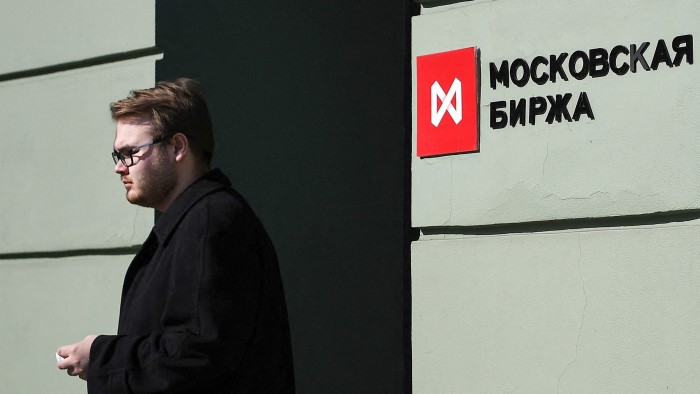Russia crisis challenges ETF sector’s ‘cockroach’ status

Simply sign up to the Exchange traded funds myFT Digest -- delivered directly to your inbox.
Just days after Russia launched a full-scale invasion of Ukraine on February 24, stock exchanges around the world called time on the trading of Russia-focused exchange traded funds.
As Vladimir Putin’s missiles hit and his ground troops advanced, one by one the major exchanges halted dealing activity. First came the bourses in Europe, quickly followed by the US. By March 3, the market for Russia ETFs was effectively closed.
The world’s biggest providers of ETFs took the suspensions in their stride — at least on the face of it — immediately backing the closures. Industry leader BlackRock announced that it “strongly supported” the shutdowns.
In truth, however, the suspensions were a troublesome first for a sector that is used to powering through geopolitical crises.
ETFs had become positively labelled by some as the “cockroaches” of the investment universe, after building a reputation for operating through any emergency.
In 2011, when Egyptian stock markets were forced to close for a month on the back of uprisings and armed rebellions, ETFs continued to trade in the secondary market.
The same was true of ETFs when stock markets in Athens shut down during the Greek debt crisis of 2015.
Even Covid-19 was not enough to stop them.
“It is unprecedented,” Manooj Mistry, chief operating officer at asset manager HANetf, says of the Russia-related ETF suspensions. “But what’s happened is beyond the control of the ETF ecosystem and is being driven by non-market factors, including specific sanctions [against Russia].”
Mistry does not believe the closures will trigger a wider crisis of confidence in ETFs, despite the inevitable delistings and liquidations ahead. Others, however, are not so sure.
“This will come as a nasty surprise,” says Mark Northway, investment manager at Sparrows Capital. “This is a first for the ETF market . . . the Russian situation is seeing effective write-offs of whole vehicles. No one should realistically expect an investment wrapper to provide more liquidity than exists at the level of the underlying securities.”

In August, BlackRock decided to begin liquidating its iShares MSCI Russia ETF, which once had assets of more than $800mn. Northway is not optimistic about investors’ chances of seeing any of their money, saying: “If markets in Russian stocks reopen before the end of 2023, there is some chance of a recovery — but, failing that, investors will get nothing.”
BlackRock says it will try to “return proceeds to shareholders if any value can be realised”.
Ben Johnson, until recently director of global ETF research and, since July, head of client solutions for asset management at Morningstar, the data provider, adds: “This has been the strongest test of ETFs’ cockroach-like qualities to date.
“For a brief period, before trading was suspended and while the Moscow exchange was still closed, Russia-focused ETFs were the last remaining outlet for price discovery for Russian stocks in the world. But, now, all bets are off.”
In spite of these concerns, however, commentators agree it is unfair to set apart ETFs, given all investors in Russian securities have been hit by the outbreak of war and the subsequent sanctions.
These have affected Russia’s ability to access foreign reserves and domestic banks’ ability to use the SWIFT messaging system.
HANetf’s Mistry says: “Investors are no worse off than if they had put money in a mutual fund investing in Russia or invested in Russian stocks directly.
“If anything, the Russia situation has been a wake-up call for the entire asset management market, as what we’ve seen is unprecedented in terms of scope and magnitude.”
Indeed, the closure of the Russian stock market on February 25 was acutely felt by all investors, with the benchmark MOEX index dropping to a record low the day before trading was halted. The Moscow exchange reopened for only very limited trading on March 24 but it is still far from certain when normal proceedings will resume.
Northway questions whether the situation is better for active Russian funds.
“Arguably not,” he says. “They too are constrained from trading their portfolios. They, too, are paralysed. Although ETFs are in the headlines, they are in no worse a situation than actively managed funds.”
Johnson agrees: “I don’t think it’s fair to single out ETFs — especially as they were the last man standing. If there’s one key lesson for investors here, it’s that investing in an autocracy is risky business.”
Comments